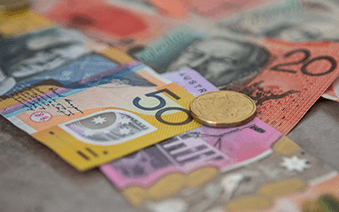You know the basics of saving money – spend less than you earn. But how can you do it and stay motivated?
Budgeting isn’t a dirty word. Sticking to one and putting the extra aside doesn’t need to be bland and boring. We’ll take you through some of the ways to save money on a tight budget in Australia to help you hit your savings goals.
Saving as much money as possible isn’t just the responsible thing to do – it can help with your peace of mind in knowing that if you’re lumped with an expensive bill you’re not stuck taking out a personal loan or using a credit card which can come with high interest rates.
But it’s not all about bills. Saving money out of every pay can help you work towards that dream holiday you’ve been craving, a new car that you need, or even pay off your personal loan quicker.
Yes, it goes without saying that making a budget and sticking to it is your biggest weapon against overspending. It helps you prioritise your spending and strike a balance between what you need to pay for and what you want to set aside.
Think about your financial goals, what you need for your basic living expenses and bills, and what you want for extras like eating out.
Some great free budgeting apps include Mint, Goodbudget, and WeMoney which are all available on both Android and in the App Store. If you like using apps on your smartphone, then a tool like this could make saving money fun.
Don’t let your potential savings be eaten away by expenses that could be reduced.
Many bank apps can help you break down which categories you spend your money on, like entertainment and utilities. This will help you find areas in your spending habits that need change and it'll be a good start as a basic savings plan.
Watch your monthly recurring expenses. You might have money coming out of your account for something that you don’t need, like membership payments for streaming services or the gym.
Otherwise, is there a reason why the same expense keeps coming up at the worst time?
Look at options to pay a large bill more often in smaller amounts for something like your car or health insurance and change your payment plan. This will stop that big expense coming at the same time every year and split it into more bite-sized pieces.
See if you can find a cheaper alternative to your recurring payments – you might be surprised to find you could save decent money by switching to another provider. Or, if your energy bill is consistently expensive, think about swapping to some energy-efficient appliances to help you save money on your power bill.
Once you’ve identified where you can make changes, it’s time to give some of these money-saving hacks a go.
If the very word ‘budget’ makes you break out in a sweat, perhaps the anti-budget is more your style. The anti-budget works by taking out your essentials and savings first, leaving the rest of your pay for guilt (and math) free spending.
First, set up a payday auto-debit for all the essentials like your mortgage or rent, insurance payments, car loans, and any fixed-amount monthly bills. Now, work how much you’d like to regularly put aside for savings and have that amount auto-debited to a separate savings account used only for this purpose.
Once your fixed costs are automatically taken out of your account (and out of your control), whatever is left is yours to spend on anything you choose – so it basically feels like you're not really on a budget at all – except you are. Clever.
This hack can help you be more mindful of what you’re spending. By using cash for your daily expenses, you’ll be able to see what you have available to spend right in front of you.
There’s a well-known technique called envelope budgeting. Take out what you need for the week in cash, then split it into categories like grocery shopping, entertainment, and petrol. You use the cash in these envelopes for their intended purpose and, once the envelope is empty, you’ve hit your spending limit. This is particularly helpful if you consistently overspend or spend your money on things that you don’t need.
A super-popular way to save money, the 52-week challenge involves putting away an increasing amount each week starting with $1 in week one, $2 in the second week, $3 in week three, and so on. If you make it all the way to 52 weeks, you’ll have a tidy $1,378 saved by the end of the year.
Some people like to write all the numbers down and draw them out of a hat, just to add to the element of surprise. Others have flipped it around so that in week one you save $52 when you know you’ll have the money for it, that is, not right before Christmas. Whatever works for you, do it.
There are lots of other small changes that you can make to save yourself some extra cash every week.
As you can see, there are lots of ways you can save where possible, from cash-only budgeting to tracking your expenses and cutting down on the things that you don’t need. No matter which money saving tip in Australia you follow, you're bound to be on the right track in cutting costs.
Aside from the important things that keep a roof over our heads, the rest is up to you to say no when you don’t need something. The best money hacks are only going to get you so far, the other half is your will to break these habits.
At the end of the day, saving money comes down to good habits put into place and strong control. They say it takes three weeks to break a habit, so why not start now?
The information contained in this blog is general advice only and does not take your specific circumstance into consideration. You should assess your own financial position, objectives, and requirements before making any financial decisions.
Australian Credit Licence 391436. Subject to lending criteria being assessed. Check our TMD.

Answering your questions about loans and staying savvy

Get more bang for your buck with these handy tips.

Need some advice that’s not about cash? We can help.